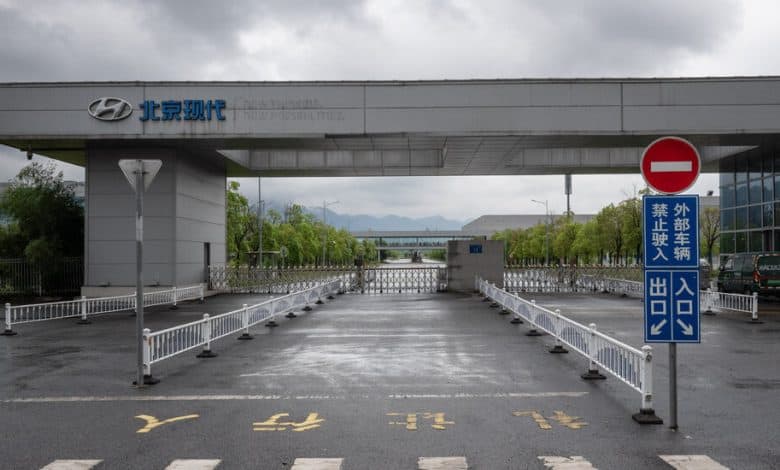‘It Is Desolate’: China’s Glut of Unused Car Factories

On the outskirts of Chongqing, western China’s largest city, sits a huge symbol of the country’s glut of car factories. It’s a complex of gray buildings, nearly a square mile in size. The thousands of employees who used to work there have moved on. Its crimson loading docks are closed.
The facility, a former assembly plant and engine factory, had been a joint venture of a Chinese company and Hyundai, the South Korean giant. The complex opened in 2017 with robots and other equipment to make gasoline-powered cars. Hyundai sold the campus late last year for a fraction of the $1.1 billion it took to build and equip it. Unmown grass at the site has already grown knee high.
“It was all highly automated, but now, it is desolate,” said Zhou Zhehui, 24, who works for a rival Chinese automaker, Chang’an, and whose apartment looks down on the former Hyundai complex.
China has more than 100 factories with the capacity to build close to 40 million internal combustion engine cars a year. That is roughly twice as many as people in China want to buy, and sales of these cars are dropping fast as electric vehicles become more popular.
Last month, for the first time, sales of battery-electric and plug-in gasoline-electric hybrid cars together surpassed those of gasoline-powered cars in China’s 35 largest cities.
Dozens of gasoline-powered vehicle factories are barely running or have already been mothballed.
